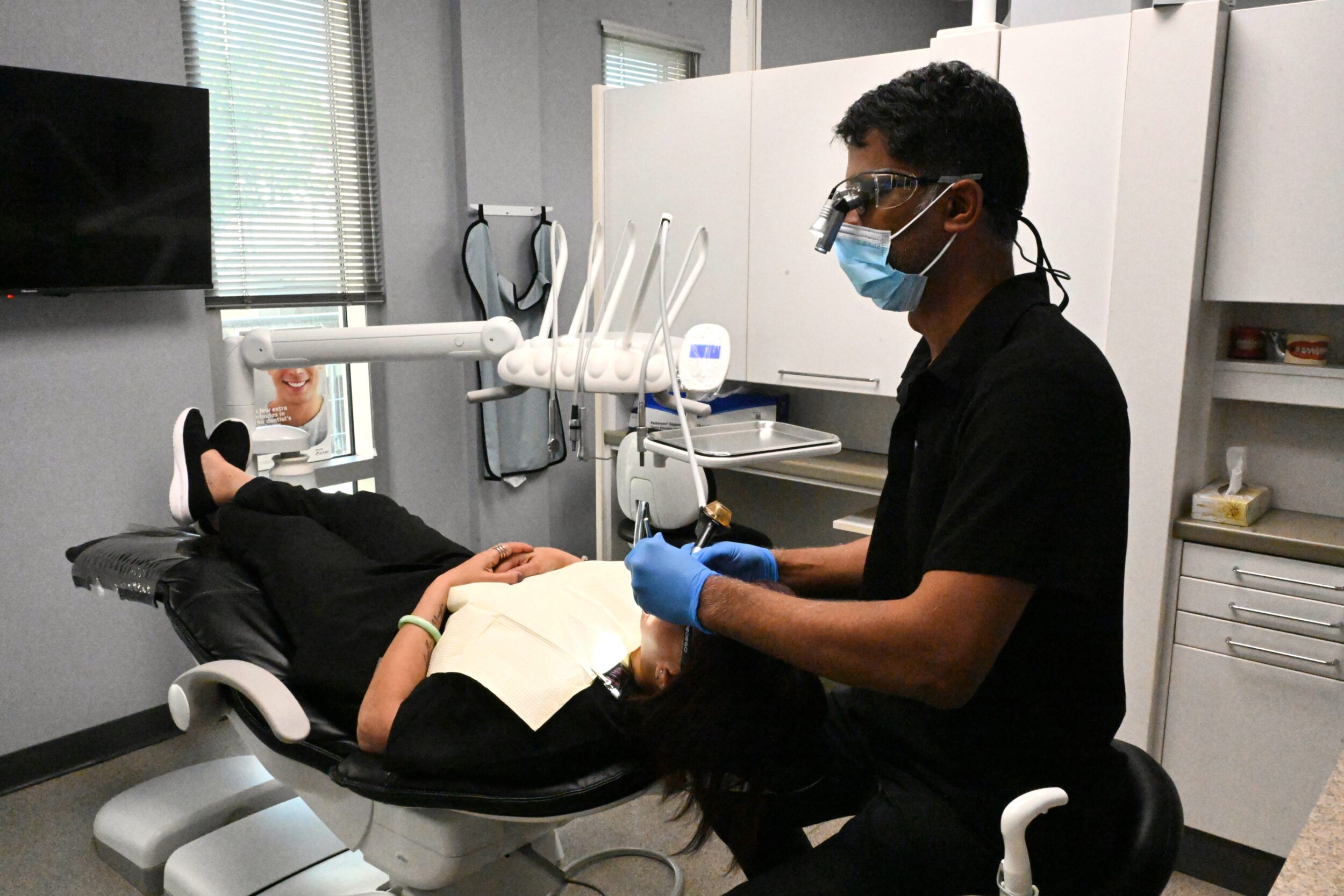Does Your Child Grind His Or Her Teeth At Night in Calgary, AB
Bruxism, or grinding of teeth, is remarkably common among children and adults. For some children, tooth grinding occurs only during the daytime, but nighttime grinding (during sleep) is more common. It depends on the frequency of the behavior, the intensity of the grinding, as well as the underlying causes of the grinding, whether bruxism can lead to a wide range of dental problems.
It is possible for children to brux for a variety of reasons, including psychological, physiological, and physical factors. A misaligned jaw (bad bite), stress, and traumatic brain injury are all believed to contribute to bruxism. Some medications can also result in grinding.

Are there any symptoms associated with bruxism?
Generally, parents can hear intense grinding, especially during the night. However, subtle jaw clenching and grinding during the day can be difficult to detect. A child’s general symptoms can often give insight into whether he or she is bruxing, including:
- Headaches are frequently reported.
- Teeth and gums that are injured.
- There is a loud grinding or clicking sound.
- Clenching or tightening of the jaw muscles in a rhythmic manner.
- An unusual complaint about painful jaw muscles – especially in the morning.
- Hot and cold sensitivity of the teeth.
Is bruxism harmful to my child's teeth?
An individual who suffers from bruxism grinds their upper jaw against their lower jaw. If the child grinds vigorously, he or she may experience moderate to severe jaw discomfort, headaches, and ear pain. Even if a child is not aware of nighttime bruxing (and its parents cannot hear it), the condition of the teeth can provide important clues to the pediatric dentist.
In the first place, chronic grinders usually show excessive wear on their teeth. The enamel of the teeth may be worn down in specific areas if the cause is jaw misalignment. Furthermore, children who brux are more likely to suffer from chipped teeth, facial pain, gum injury, and temperature sensitivity. Temporomandibular joint disorder (TMJ) can be caused by frequent, harsh grinding.
Bruxism: what causes it?
There are several factors that can cause bruxism. The most common cause of grinding is a bad bite or jaw misalignment. Also, pediatric dentists have noticed that children tend to brux more frequently when stressed. A child who is going through a particularly stressful exam period or who is relocating to a new school, for example, may become more prone to nighttime bruxing.
Certain developmental disorders and brain injuries may put children at particular risk for grinding their teeth. A pediatric dentist may suggest botulism injections to calm the facial muscles or a nighttime mouthpiece as a protective measure. A sudden onset of bruxism requires an evaluation of current medications. While bruxism is a rare side effect of certain medications, the medication itself may need to be switched to a different brand.
What is the treatment for bruxism?
Most children cease bruxing spontaneously by the age of thirteen. Meanwhile, the pediatric dentist will monitor its effects on the child’s teeth and may provide intervention.
It is generally the cause of the grinding that dictates the treatment approach. A pediatric dentist may take steps to correct the child’s badly misaligned teeth. There are several options available, including crowning the teeth and beginning occlusal treatment.
The pediatric dentist may recommend relaxation classes, professional therapy, or special exercises if bruxing is exacerbated by stress. A child’s pediatrician may also prescribe muscle relaxants to alleviate jaw clenching.
When young teeth sustain significant damage, the pediatric dentist may recommend a nighttime dental appliance like a nighttime mouth guard. It looks similar to a mouthpiece a person might wear during sports and prevents teeth from grinding against one another. It is almost universally true that bite splints or bite plates prevent grinding damage, and they fulfill the same function.
Contact your pediatric dentist if you have questions or concerns about bruxism or grinding teeth.